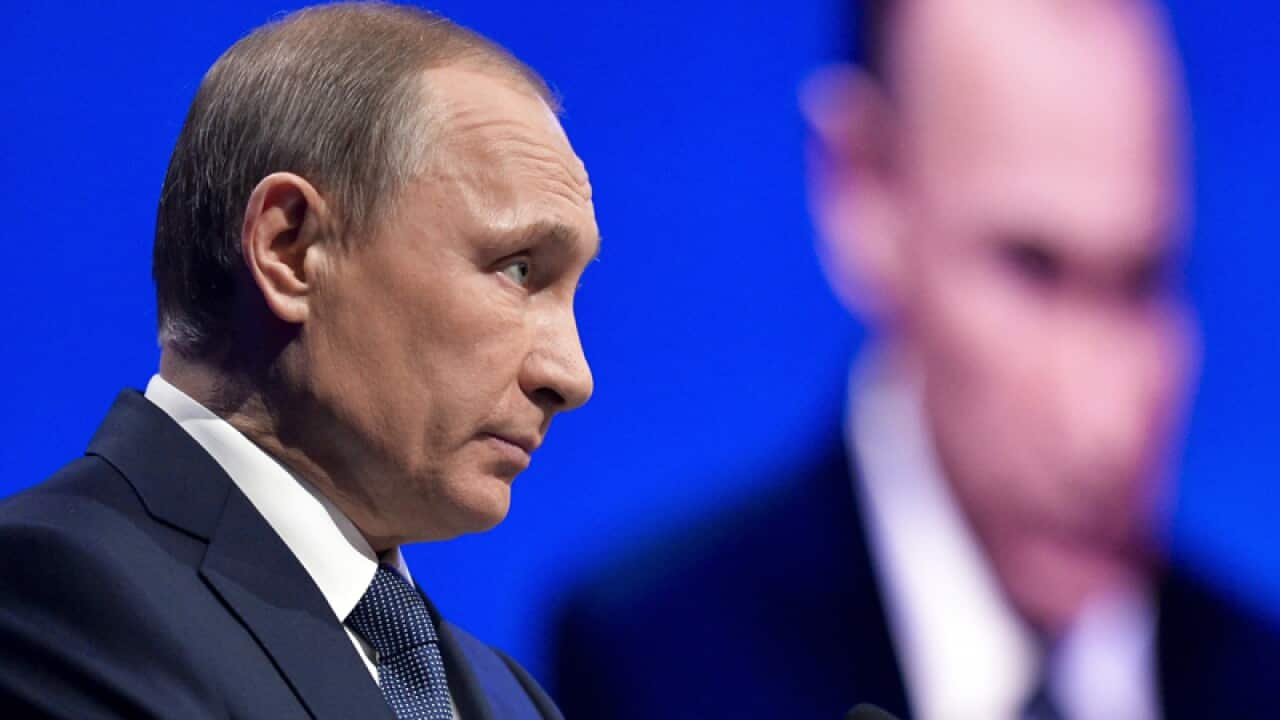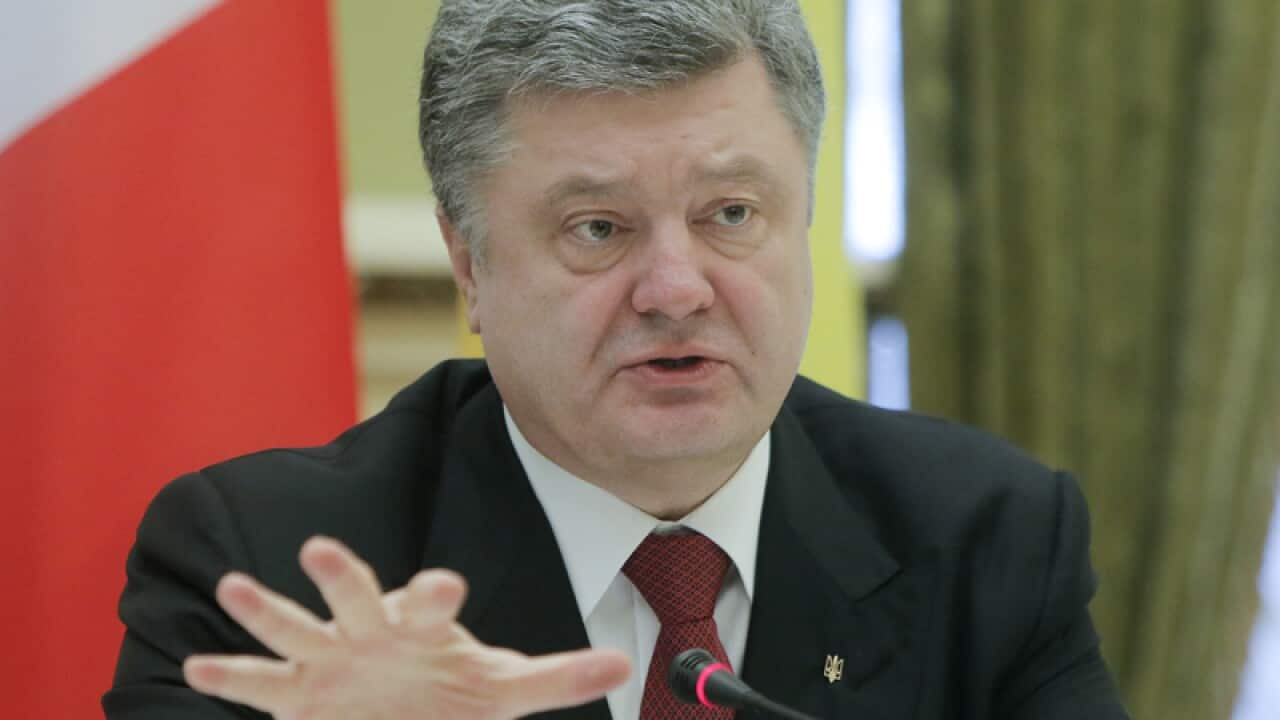Ukraine's Western-backed government has survived a no-confidence vote, staving off the immediate prospect of a snap election in a country fighting a deep recession and a pro-Russian separatist insurgency.
Tuesday's vote took place just hours after President Petro Poroshenko publicly urged the prime minister to resign, a move that underscored the level of political infighting that has derailed efforts to implement lasting reforms.
Ukraine's international backers have invested much money and political capital backing the government in its stand-off with Moscow after Russia's annexation of Crimea in 2014 following the overthrow of Kiev's pro-Russian president by protesters.
But the former Soviet republic's failure to tackle corruption and implement reforms has already derailed a Western aid program that keeps its economy afloat, and a ceasefire with pro-Russian separatists in the east has been fraying.
READ MORE

US imposes Ukraine-related sanctions
Growing disillusion
The fact that the no-confidence vote happened at all underlined the public's growing disillusion with the leaders it elected after the 2013-14 Maidan uprising that raised hopes of transforming the country.
It means the government will probably be safe at least until the next parliament session starts in September.
But Prime Minister Arseny Yatseniuk still faces an uphill battle to push through reforms required to secure more money from a $US40 billion ($A56 billion) international aid package.
His economy minister resigned at the start of February, complaining that corrupt vested interests were meddling in his ministry's work.
"I am sure that what we did was the only right path. We inherited a ransacked country with the Russian army and Russian boots on Ukrainian territory," Yatseniuk said in a speech before the vote.
"We rescued this country, I ask you to respect this. We leave the country with a full treasury, an armed military and restructured debt."
Ongoing separatist conflict
A year-old ceasefire agreement has failed to stop the separatist conflict in Ukraine's eastern industrial belt.
Three Ukrainian servicemen were killed in the past 24 hours, the Ukrainian military said, the highest death toll since November.
The vote to topple Yatseniuk mustered 194 votes, dozens of votes short the 226 required, with many opposition lawmakers walking out before the vote took place.
In a sign of possible further trouble down the line, the majority of the ruling coalition voted against the government.
Poroshenko had said Yatseniuk's government had lost public support and committed "more mistakes than achievements".
Poroshenko heads Ukraine's largest party, and Yatseniuk the next largest. Both are in the governing coalition.
Yatseniuk took office in 2014.
His approval ratings have plunged to below 1 per cent but he had no obvious successor, although the parliamentary speaker and the technocrat finance minister were considered contenders.
Also under fire for his performance in office, Poroshenko made a concession to his critics by asking General Prosecutor Viktor Shokin to resign.
Shokin, who had been nominated by Poroshenko for the post, has been widely criticised by lawmakers and activists for not implementing judicial reforms.

